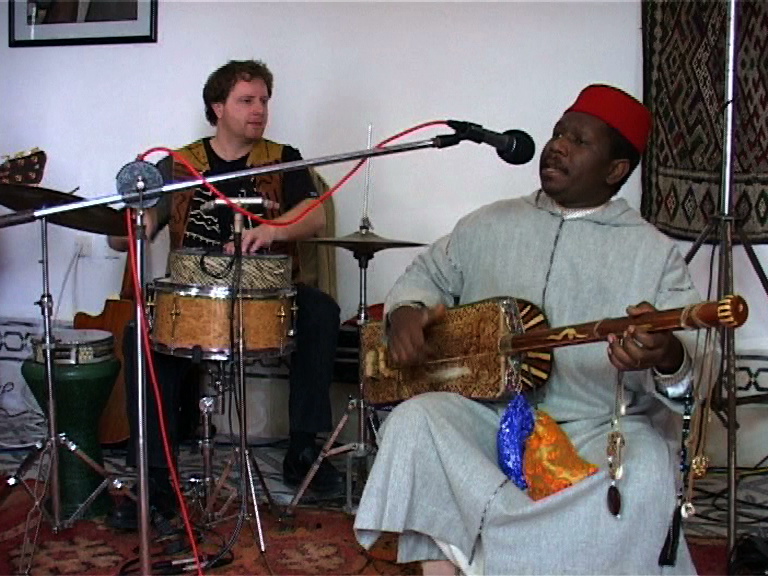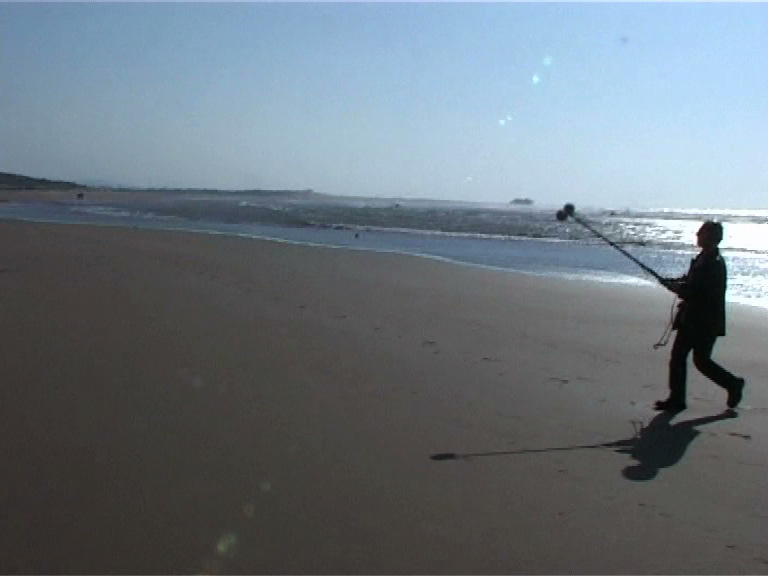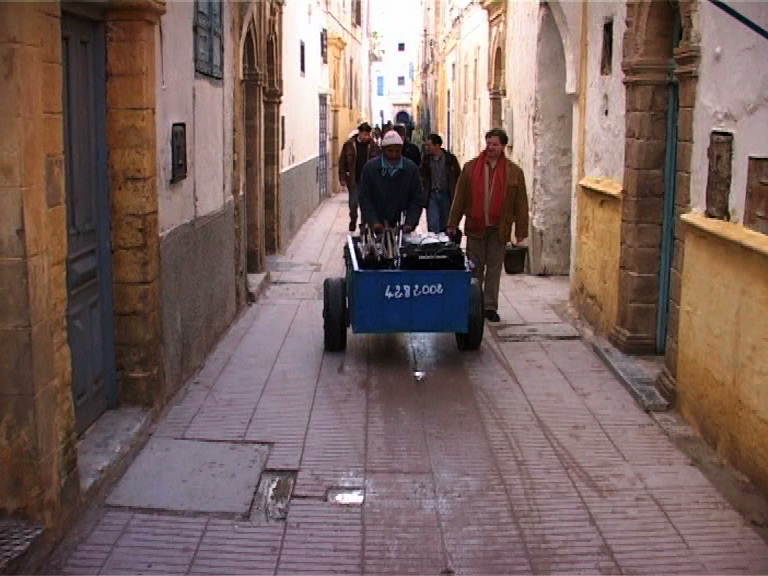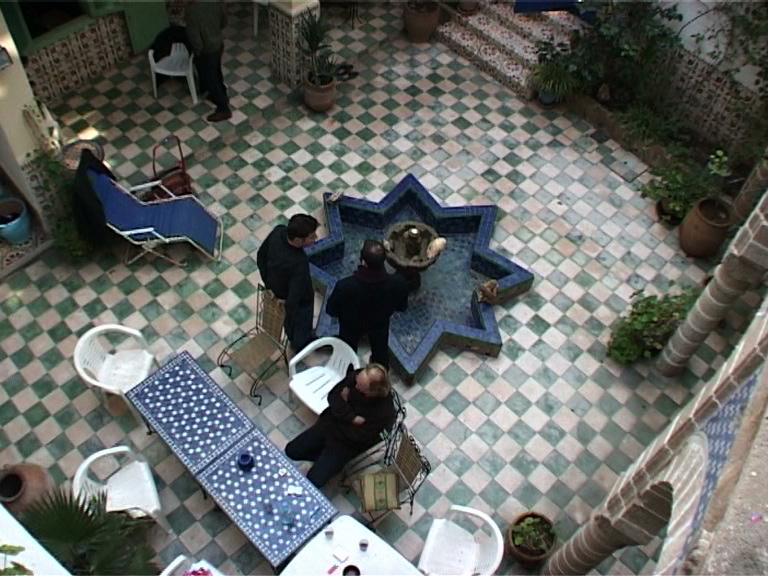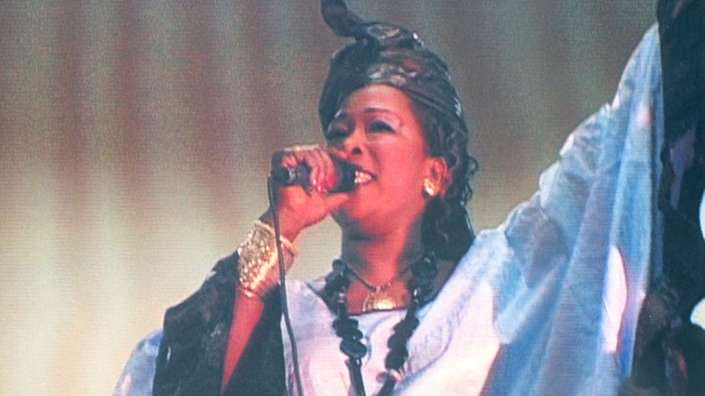La Rochelle – Essaouira : a passage
La Rochelle, September 2000: Pascal Ducourtioux, a jazz composer, chooses to record his next album by inviting Gnawa musicians from Essaouira.
Essaouira, March 2001: we follow him to Morocco. Choosing to be as close as possible to the creation of a recording means observing people communicate, watching various elements blend into a cohesive, unique discourse. This uniqueness honors the distinct character of each individual, yet they all speak with one voice: that of the music.
Type (Documentaire / Documentaire fiction / Série documentaire)DocumentaryGenre en anglaisArt & cultureDirected by Christel Lucarz, William GuérinSupported by CNC, Conseil Régional de Charente-Maritime, Conseil Régional de Poitou-CharentesYear2004Duration52min
But what does it mean to film music? How can one hear and see the work of music?
Filming the work first involves respecting durations: calendar duration, which dictates rehearsals, recordings, and concerts, but also the duration specific to musical time, allowing the viewer to feel the development of the discourse as a cinematic material. Cinema can serve to show that music is sculpted just like a block of stone, and that the desire to play together combines with the resistance of codes imposed by cultural traditions.
This film offers both a spectacle of collaboration and a struggle. Indeed, what discourse is not constructed in opposition to another discourse? This is even the foundation of language, which is the struggle of “the other” to be recognized and loved, extracting some fragments of differences that inscribe what it gives, often without knowing or realizing it. La Rochelle-Essaouira is the narrative of this “passage.”
